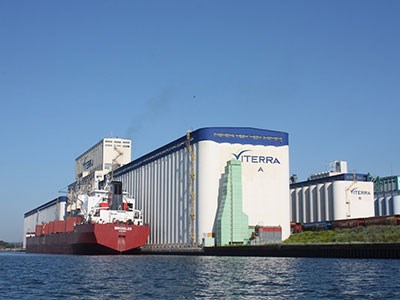The indefinite suspension of grain exports through the Port of Churchill should provide a modest bump to port activity in Thunder Bay.
Workers at the remote Manitoba port were notified July 25 that grain shipments were being halted Aug. 2 for the remainder of this year.
The decision was made by Denver-based OmniTrax, owner of the saltwater port and the railroad leading to the Hudson Bay coastal community. Grain destined for Churchill be diverted to other ports, including Thunder Bay.
“It’s a relatively small amount of grain,” noted Thunder Bay Port Authority CEO Tim Heney, who said Churchill averages 500,000 tonnes a year while Thunder Bay routinely handles between eight and nine million tonnes annually. “To put that in perspective, on a reasonable month in Thunder Bay that’s about 10 days of shipping.”
Churchill appears to be a late casualty of the federal government’s dissolution of the Canadian Wheat Board monopoly in 2012 that fundamentally changed when grain is moved to market, and what ports it was shipped through.
The major grain-handling companies are now emboldened to reroute cargoes to ports of their choosing, and in Thunder Bay’s case make significant acquisitions and investments in elevator assets.
“We’ve had three facilities that are opened in Thunder Bay that weren’t 10 years ago,” said Heney.
He doesn’t view Churchill as a competing port because of its relatively small grain volumes and short 14-week shipping season.
But he acknowledges federal subsidies helped prop up Churchill and siphoned off grain cargoes that otherwise would have gone through Thunder Bay.
“It was that way, no question about that. That’s politics. In terms of it being a huge impact on us, not really. You can’t cry about 500,000 tonnes. It wasn’t a huge factor,” he said.
“We will get more shipments out of it, but grain has become a very competitive business with different competing supply chains with Vancouver, direct rail and lots of other options. If your supply chain becomes non-competitive you will go out of business eventually.”
Heney said Churchill has been further hampered by huge rail infrastructure problems with the 820-kilometre track that was built on permafrost. When it heaves in the summer, the line is shut down for weeks until repairs can be made.
“The problem is the railroad. It can never be a high volume port unless you fix the rail line.”
But Heney isn’t gloating about Churchill’s misfortune, not when half of Thunder Bay’s grain cargoes coming from that province.
“I feel bad for Churchill and have empathy for them. I hope they have success in diversifying their cargo.”
With Churchill not exporting, Heney said it’s difficult to predict the volume of activity in Thunder Bay this fall. Early indications are that it will be a record or near-record crop from Western Canada in all grain categories.
Thunder Bay has enjoyed two strong back-to-back grain hauls based on a major harvest two years ago that carried over into the next year.
With the largest grain storage in Canada and abundant through-put capacity, Heney said Thunder Bay has room to take on additional cargo with the rail car turnaround efficiencies now in place.
“When it hits 9 million tonnes, we’re running at 50 per cent through-put.
“This port can do huge tonnage if it has to. Three thousand (rail) cars a week is not out of the question here.”




